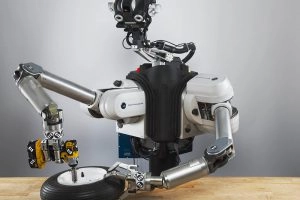Description
Considering artificial intelligence (AI) tools can now effectively mimic human communication, robots can ace the Turing test, and lobsters and crabs have been classified by some nations as sentient, the topic of consciousness has never been more timely or interesting.
In this discussion, USC experts share the latest developments and research regarding consciousness, including philosophical and scientific approaches to consciousness, the relationship between consciousness and the brain, and the potential implications of recent discoveries on our understanding of the human mind. The panel features Antonio Damasio, author, David Dornsife Chair in Neuroscience, professor of psychology, philosophy and neurology, and director, Brain and Creativity Institute at USC Dornsife College of Letters, Arts and Sciences; and Tok Thompson, author and professor (teaching) of anthropology and communication at USC Dornsife.
The seminar is moderated by Jonas Kaplan, neuroscientist, associate professor of psychology and co-director of the USC Dana and David Dornsife Cognitive Neuroimaging Center.
Who Will Benefit
– Those hoping to understand how recent developments in AI are impacting our perception of consciousness
– Professionals seeking insights on what role AI will play in their careers
– Those interested in exploring the ethical implications of AI
About Our Featured Faculty
Antonio Damasio is the David Dornsife Chair in Neuroscience, a professor of psychology, philosophy and neurology, and director of the Brain and Creativity Institute at USC Dornsife College of Letters, Arts and Sciences. Trained as both neurologist and neuroscientist, Damasio has made seminal contributions to the understanding of brain processes underlying affect and consciousness. His work on the role of emotions and feelings in decision-making has made a major impact in neuroscience, psychology and philosophy. He is the author of numerous scientific articles (his Google Scholar H Index is 161; over 226,940 citations), and his research has received continuous federal funding for more than 30 years. He is the recipient of many awards and a member of the National Academy of Medicine, a Fellow of the American Academy of Arts and Sciences, and a member of the Bavarian Academy of Sciences and the European Academy of Sciences and Arts.
Jonas Kaplan is an associate professor of psychology and is the co-director of the USC Dana and David Dornsife Cognitive Neuroimaging Center. Kaplan is a cognitive neuroscientist who uses functional neuroimaging techniques to understand issues at the core of what makes us human. His research has investigated the neural basis of our deepest beliefs and values, our self concept and identity, and how we connect and empathize with others. He also has an interest in the neural basis of narrative cognition, in understanding how our brains make meaning of the world through story. This research involves examining how the brain responds during complex, unfolding experiences such as movies or musical performances. A complete understanding of these neural systems also involves studying states of mind that occur when narrative thought is reduced, such as in meditative practice.
Tok Thompson is professor (teaching) of anthropology and communication at USC. He was born and raised in rural Alaska. At the age of 17, he began attending Harvard College, where he received his bachelor’s degree in anthropology. He received a master’s degree in folklore from the University of California, Berkeley, and three years later received a PhD in anthropology from the same institution. After receiving his PhD, Thompson engaged in a two-year postdoctoral position with the Centre for Irish-Scottish Studies at Trinity College, Dublin, where he helped launch a new M.Phil. in Translation Studies. He also researched Irish language traditions in County Fermanagh, and taught classes for the University of Ulster. In the fall of 2006, Thompson came to USC, where he has been teaching graduate and undergraduate courses in folklore and related topics.



